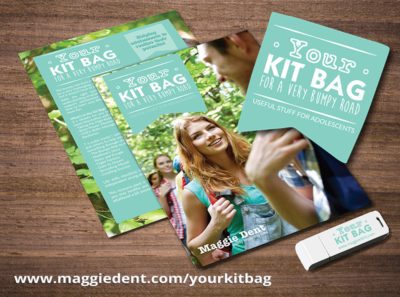Essential Kids Blog, Maggie in the Media, Posts for Parents, Raising Adolescents, Schools: Choosing & Transitioning
Surviving the first week of high school
As a former high school teacher, year coordinator and counsellor — as well as a mother of four sons and an aunty to many – I have witnessed the transition from primary to high school heaps of times.
It is a big change for all students as many families going through the transition this week and next will attest to. They go from usually one teacher, one classroom, a familiar environment with routines and a circle of familiar peers and friends to the more complex setup of high school.
All change triggers our primitive brain and our biological drive to survive – it is stressful for everyone. Our pubescent or early adolescent – depending on maturity – is already in a state massive change.
They experience seemingly random changes physically, emotionally, hormonally, socially and then some have already started the unique synaptic pruning of their brains too.
So even before they venture into the new land of high school they are struggling with heightened stress levels.
When I have asked first-time high school students what worries them most about starting school, their responses are similar.
They worry about things like: getting lost, hard work, having their head flushed in a toilet, bullying, getting changed in front of other students for PE, not making friends, losing stuff (like their locker key, bags, PCs, phones), saying goodbye to fun – perceiving high school as all about marks and grades, homework, disappointing their parents (especially those in private schools), or being attacked on social media.
It is not helpful when grown-ups share horror stories about their experiences.
So what can you do to help?
- Talk to your kids about how change impacts everyone – that it’s normal to feel anxious and a bit scared.
- Help them get prepared. Last minute rushing adds to their fragile psyche!
- Download the school map and plot where toilets are and key areas like science, English, technology, etc
- When they come home with their timetable – have them explain it to you make several copies (hard or digital–get them to keep one on their phone and keep a copy on the fridge. Take care to avoid over-intruding or nagging though.
- Set up a firm bedtime – having good sleep routines is one of the best ways to stay healthy as a growing adolescent.
- Give your kids a clear idea of what helps their brain work best – water, good food, exercise and sound sleep are essential for learning.
- Work out technology boundaries for weekdays and weekends and put some agreements in place with your adolescent. Make sure one of those boundaries is no technology or TV in the bedroom, it will help sleep and can help you stay positively connected to your teen.
- Have good quality parental controls to protect all kids in your house from inappropriate content or excessive usage.
- Encourage your kids to join an activity they already enjoy – music, dance, swimming, team sports, drama. This is a good way to make new friends or maintain existing friendships.
- Diffuse any ‘catastrophising’ from your child, especially about teachers, subjects and the like. Keep affirming the importance of getting a good education.
The value of friends
Early adolescence is a time when our sons and daughters start their biologically-driven push away from parents and are drawn to belonging more strongly to peers and friends.
By making your teen’s friends welcome in your home, you can help this process.
Also, if you can become a ‘lighthouse’ or significant caring adult ally to your teen’s friends then hopefully the parents of their friends can do the same for your son or daughter.
Many students in high school are rightfully scared about being bullied. However much of the nastiness that occurs – like rolled eyes, turning your back or random name calling – is often just meaningless and a part of growing up.
Early adolescence is a time of heightened emotions and sensitivity, and so any relational aggression hurts more deeply than before adolescence.
Sometimes it’s useful to prepare young adolescent for this by talk about things they can say in these situations.
A quick comeback like “Thanks for sharing”, “Whatever you reckon” or just nodding, smiling, shrugging and then walking away can diffuse some situations.
Sometimes role playing or practising these quick responses at home can help your newbie to manage things when ordinary nastiness happens.
Bullying is different and needs to be addressed. That in itself is a whole other article, but one thing to note is that having friends and being a good friend is the best protection from bullies so do all you can to support your teen to make and keep friends.
And make sure your teen knows they are not alone… not just at school, but there is lots of support online.
High school and its pressures are just one area of stress for our young teens.
Become as well informed as you can about the challenges of this life transition and do whatever can you to ensure your home is a ‘safe base’ for your young teen where they can feel safe, loved and secure.
Lastly if you are worried that your son or daughter seems to be struggling after the first month, make a connection to the appropriate Year advisor as that is their job to help smooth the way.
Remember every child navigates this journey differently – so aim to be fair and kind and stay positive.

Support your teens to boost their brain power, stay healthy, stress less and make the bumpy ride to adulthood a bit smoother with Maggie’s resource, Your Kit Bag for a Very Bumpy Ride, available to download now or on USB.



